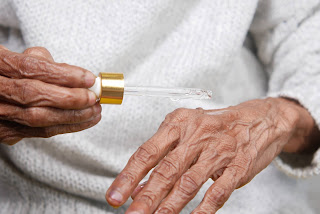What to do if you are bitten by a snake?
What to do if you are bitten by a snake?
Why do some snake bites become venomous?
Venomous snakes have specialized salivary glands that secret and store venom which is probably evolved to catch the prey. These venoms can cause life-threatening complications once they enter the bloodstream. Because of that, there are two types of snake bites.
1. Dry bites
Here the snake couldn't able to inject the venom into the bloodstream. Even though there is a snake bite there are no serious complications due to venom.
2. Venomous bites
Here venom enters the bloodstream. This can cause serious complications. This process is called envenomation.
What are the types of venom?
1. Cytotoxins
These types of venom cause local tissue damage mainly at the site of the bite. As the name implies these toxins damage the local site cells.
2. Hemotoxins
These toxins cause abnormal functioning of the blood circulation system. This can lead to excessive bleeding.
3. Neurotoxins
These toxins affect the nervous system and impair the functioning of body muscles. This can stop respiration.
4. Cardiotoxin acts directly on the heart to stop it.
What are the types of envenomation?
1. Local envenomation
Here venom enters the body but mainly cause complications at the site of the bite. This is mainly caused by cytotoxins.
2. Systemic envenomation
Here venom enters the bloodstream resulting in more dangerous and life-threatening complications. Mainly it affects the functioning of blood circulation, the functioning of the nervous system, the heart, and the kidneys. Ultimately all the systems in the body get affected due to systemic envenomation.
How to identify the local envenomation?
1. Swelling of the site
2. Pain and redness in the area
3. Blistering of the affected area
4. Death of local site tissue resulting in peeling off.
How to identify systemic envenomation?
There are early non-specific features like,
1. Abdominal pain
2. Nausea
3. Vomiting
4. Low blood pressure
5. Abnormal blood tests like high white blood cells in full blood report.
There are system-specific features like,
1. Difficulty in breathing and moving limbs due to neurotoxins
2. Red color urine, red or tarry feces, red color skin patches, blood vomiting, gum or other mucosal bleeding due to hematotoxins (Coagulopathy)
3. Reduce urination with short-term kidney damage (Acute kidney injury)
4. Severe muscle pain due to muscle damage (rhabdomyolysis)
What to do if you are bitten by a snake?
Unless the snake is identified as nonvenomous by a professional always admit the patient to the nearest hospital.
1. Move beyond the striking distance of the snake
2. Try to keep the bite site below the heart level to reduce the backflow of the blood from the affected site. This will slow down the spreading of the venom.
3. Don't get anxious and try to be calm as possible which will reduce the spreading of venom.
4. Remove the jewelry, and shoes from the affected part of the body. There can be a loss of blood supply to the affected area with local swelling due to the compression of jewelry.
5. Wash the bite site with clean water to reduce the chance of secondary bacterial infection.
What not to do if you are bitten by a snake
1. Don't try to suck out the venom from the bite site.
2. Don't apply a tourniquet or any other chemicals
3. Don't try to cut out the bite site.
4. Don't give any medication, alcohol, or any other drug even as a painkiller.
How to manage the complications of a snake bite?
Most of the time antibiotics will be given to avoid secondary bacterial infections at the local site. The rest of the management differs from having features of envenomation. Identification of the snake also plays an important role in the management.
Usually, antivenom is not given to patients who only develop features of local envenomation unless it's a cobra bite. Cobra bites can cause extensive local site tissue damage. Therefore giving antivenom will reduce the spreading of the best tissue damage.
Antivenom can cause serious allergic reactions. Some allergic reactions are life-threatening. Therefore early identification and management are important.
Monitoring for complications is a crucial step in management. several blood tests will be done to identify complications. Whole blood clotting time, PT/INR will be done to identify Coagulopathy. A renal function test is done to identify renal damage.
We will discuss more venomous snakes in the next posts...
Stay tuned...








Comments
Post a Comment